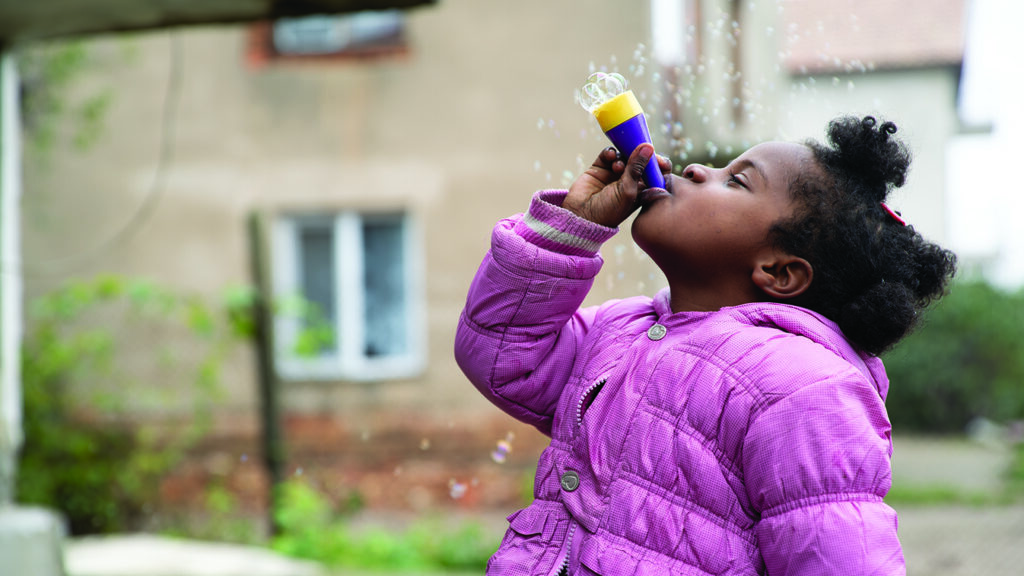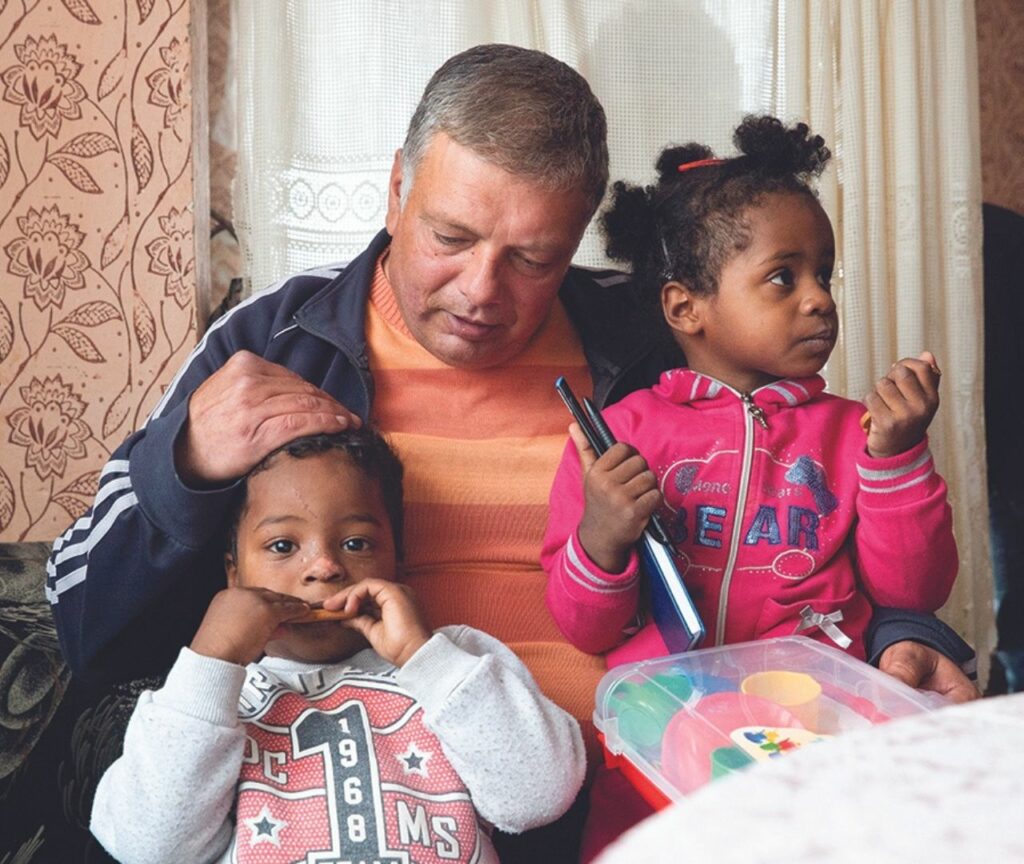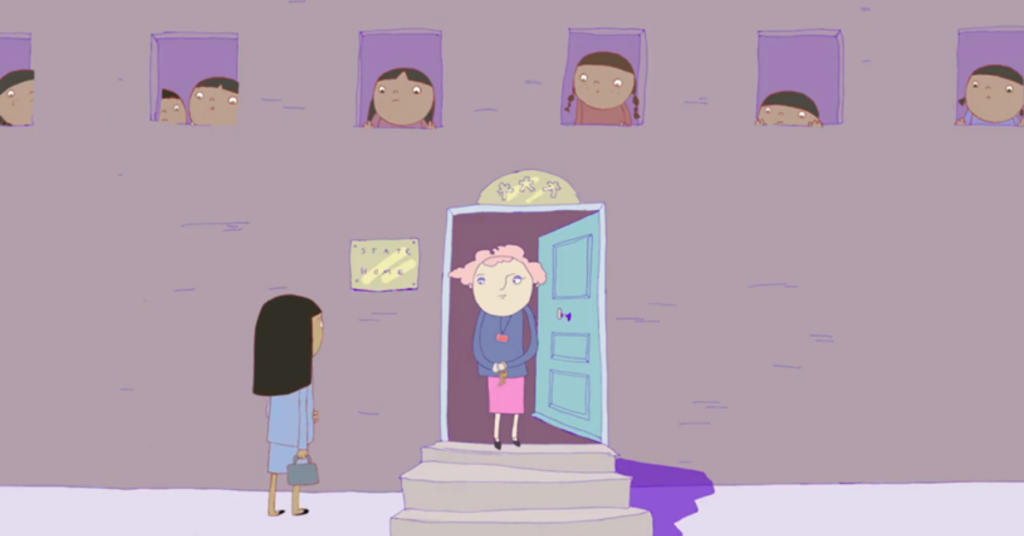The post “They said how could you possibly want to keep black children?” appeared first on Hope and Homes for Children.
]]>By providing the practical and emotional support their parents needed, Hope and Homes for Children in Bulgaria made it possible for Kaloyan and Maria to be reunited with their family and grow-up where they belong; with the people who love them.
Four year-old twins Kaloyan are very much the centre of attention in the warm and happy home they share with their mum, Tanya, their stepdad Ivan and their older brother and sisters in a village in the North West of Bulgaria.
But the twins spent the first five months of their lives separated from their family in an orphanage after ill-health threatened to tear their family apart. Tanya became pregnant with the twins when she was working abroad to earn money for the family. Ivan agreed to stand by his wife, even though the babies were not his, and Kaloyan and Maria were born soon after Tanya returned home. It was a traumatic birth that ended in an emergency caesarean section and left Tanya suffering from post-natal depression. At the same time, Ivan was admitted to hospital to receive treatment for a heart condition.
Tanya felt completely alone. “I listened to the nurses in the hospital who behaved very badly. They said, “How can you even want to look at your black children? Better you give them up, right?”, she remembers.
Tanya felt completely alone. “I listened to the nurses in the hospital who behaved very badly.”
With no one to support her, Tanya felt she had no choice and made the heart-breaking decision to leave Kaloyan and Maria in an orphanage.
“I cried constantly when I signed to give them up because I grew up without a mother or a father. They left me very young, in a home and I just didn’t want my children to be the way I was.”

She returned home to Ivan and their older children but could not come to terms with losing the twins.
“I neither ate nor slept peacefully, just wondering how my kids were. How are they in this orphanage without me?”, she explains. Tanya was desperate to find a way to be reunited with her babies. And Ivan decided to support her decision. Even though everyone in their small rural community would know they were not his biological children, even though he was well aware of the prejudice they would face, he was determined to make their family whole again.
“I neither ate nor slept peacefully, just wondering how my kids were. How are they in this orphanage without me?”
It has been tough fight to overcome all the practical, bureaucratic and legal hurdles that have stood in their way—both to bring the twins home and to care for them ever since but our team in Bulgaria has been beside them all the way.

Social worker, Margarita Andreevksa, co-ordinates support for children in families in the area where they live. She ensured that Kaloyan and Maria’s family had all the practical and emotional support they needed to bring the twins home and be able to care for them for good. This included paying for transport for Tanya and Ivan to visit the twins in the institution and rebuild their bond with their babies; help with red tape to receive the extra social support the family is eligible to claim for the children; arranging and attending specialist appointments with Tanya to help her recover fully from the birth of the twins and protect herself from future unwanted pregnancy; securing the medicines that Ivan needs to manage his heart condition; and providing food, baby essentials, fuel for heating and extra clothes for all the children in the immediate months after the twins returned from the orphanage.
“Social worker, Margarita Andreevksa, co-ordinates support for children in families in the area where they live. She ensured that Kaloyan and Maria’s family had all the practical and emotional support they needed to bring the twins home and be able to care for them for good.”
Five months after they were born, Maria Andreevska went with Tanya to bring the twins home from the orphanage and in the months that followed she helped to arrange and attended their medical appointments to make sure they have treatment when needed and all the vaccines they need to enroll at nursery. Today Kalyon and Maria are four years old and they are happy, sociable and energetic children. Like all children their age, they love their toys but especially picture books that make sounds. Because of his health issues, Ivan does most of the childcare while Tanya works as a street cleaner. They both take seasonal work like picking walnuts where they can. “Everything was just wall after wall, after wall, after wall,” Ivan says, “But here we are and we are still one.”
Support our work Every child deserves a family
Help us to make sure that every child has a loving, stable home.
The post “They said how could you possibly want to keep black children?” appeared first on Hope and Homes for Children.
]]>The post We demand states close down institutions for children and protect rights of Romani families appeared first on Hope and Homes for Children.
]]>
The new European Union Strategy on the Rights of the Child states that all children, including those with disabilities and from disadvantaged groups, have an equal right to live with their families and in a community. Yet in many countries throughout Europe, Romani children are routinely removed from their families and placed in children’s homes at a disproportionate rate compared to the rest of the population. Research in Bulgaria, the Czech Republic, Hungary, Italy, Romania and Slovakia showed that Romani children can make up between 20- 80% of children in care institutions due to institutional biases, discrimination, and the illegal practice of removing children on the basis of poverty. This is a long-standing issue, which in light of the new strategy on the Rights of the Child, the new EU Roma Strategic Framework, and the EU anti-racism action plan, needs to be urgently addressed.
The organisations call on European Union institutions to continue to support member states, enlargement, and neighbourhood countries to break the cycle of poverty, combat discrimination, and promote national strategies to speed up de-institutionalisation reform, including by using EU funds. The organisations call on national governments, in countries inside and outside of the EU, to commit to eliminating institutional care and investing in accessible social support mechanisms, preventative measures, and family-based care for those children whose best interest is to be removed from their families of origin.
The ERRC is bringing legal complaints in seven countries (Bulgaria, the Czech Republic, Moldova, North Macedonia, Romania, Slovakia, & Ukraine) which are institutionalising young children and discriminating against Romani families.
ERRC President, Đorđe Jovanović, said:
“We see the existence of these state homes as a form of violence against young children, and the discriminatory practice of filling them with Romani kids as a form of racist violence. These countries have made promises to close their institutions but progress has been too slow. If they refuse to modernise their care system, then legal action is the only option.”
The legal complaints are being taken before national equality bodies, ombudsperson’s offices, and international bodies such as the European Committee of Social Rights. The complaints are based on research carried out mostly in 2020 and 2021 into the overrepresentation of Roma in state care. They are designed to hold states accountable fortheir obligations under international law to respect the right of the child to family relations, and to ensure that the best interest of the child prevails at all times.
Mark Waddington CBE, Chief Executive Officer at Hope and Homes for Children, said:
“Any form of institutionalisation based on discrimination is a breach of human rights. We are working tirelessly across the world to ensure that no child ever suffers the harm of institutions and instead grows up in a loving family. It’s essential that European states act now to do the same”.
Institutionalisation has devastating emotional and developmental effects on children, especially their physical growth, cognition, and attention, as well as their ability to form attachments. The effects of institutionalisation on infants – particularly in the early stages of life – can be largely irreversible.
Institutionalisation has an especially negative effect on Romani children who leave care stigmatised both for their ethnicity and for being an ‘institution child’. The chances of children being reunited with their family of origin drop exponentially with every year in care, as do their chances of being adopted. The adoption of Romani children living in institutions is almost non-existent, due to societal racism and a lack of parents willing to adopt Roma in many countries.
A human rights-compliant response to the existing situation of Romani children in state care calls for the total elimination of institutional care, and the development of appropriate child support services across Europe. We call on states to provide full and adequate protection to Romani children and families at risk of separation, to fully ensure that child removal on the basis of poverty is prohibited in law and in practice.
*This work is supported by Clifford Chance
This press release is also available in Bulgarian, Macedonian, Romanian, Slovak and Ukrainian.
For more information, or to arrange an interview contact:
Jonathan Lee
Advocacy & Communications Manager
European Roma Rights Centre
jonathan.lee@errc.org
+36 30 500 2118
Michela Costa
Director of Global and EU Advocacy
Hope and Homes for Children
michela.costa@hopeandhomes.org
Ally Dunhill
Head of Advocacy Eurochild
Ally.Dunhill@Eurochild.org
+32 02 211 0558
The post We demand states close down institutions for children and protect rights of Romani families appeared first on Hope and Homes for Children.
]]>